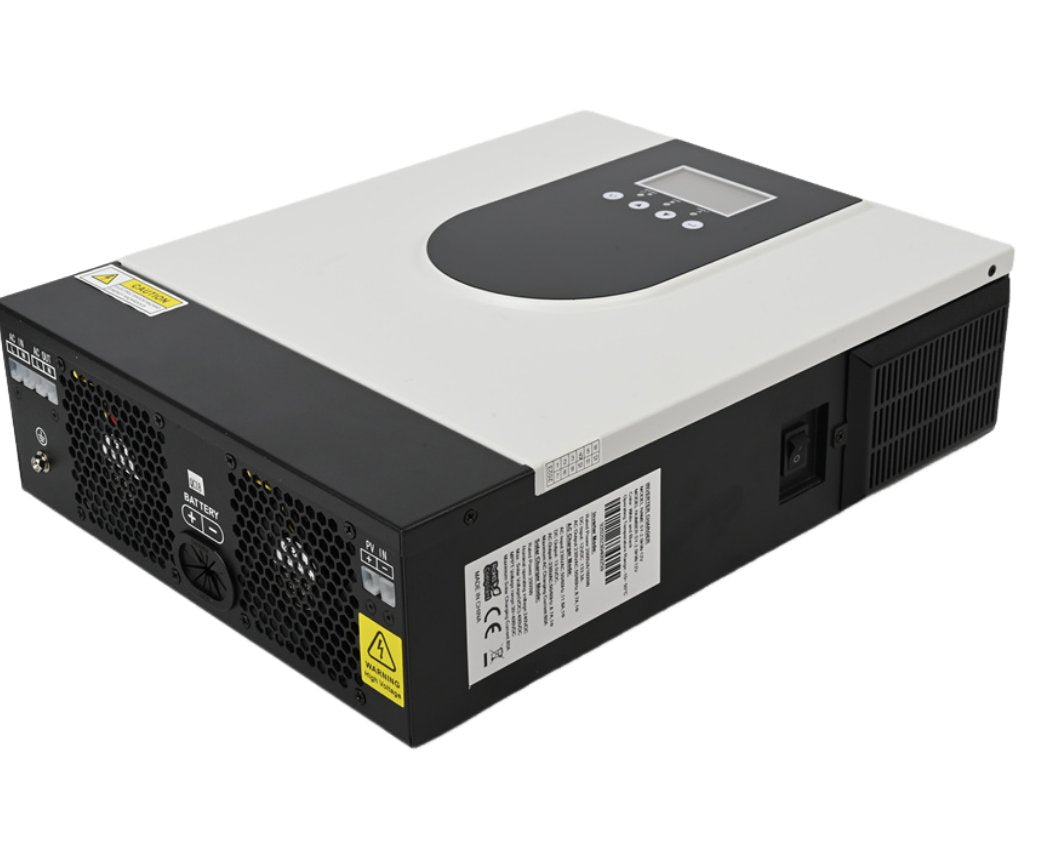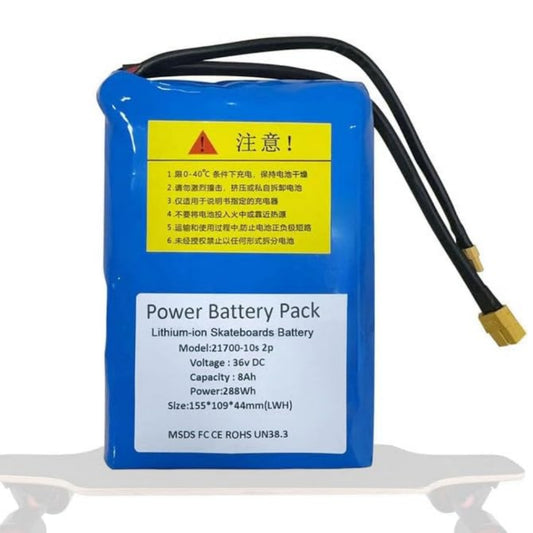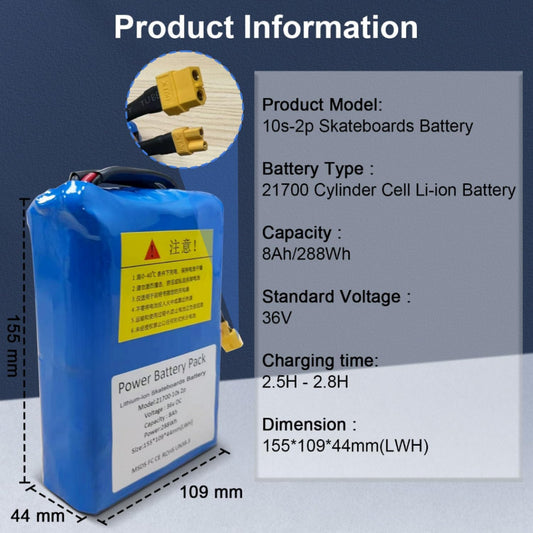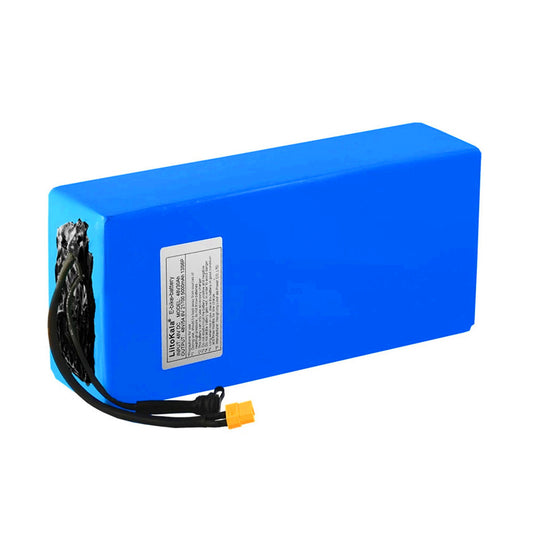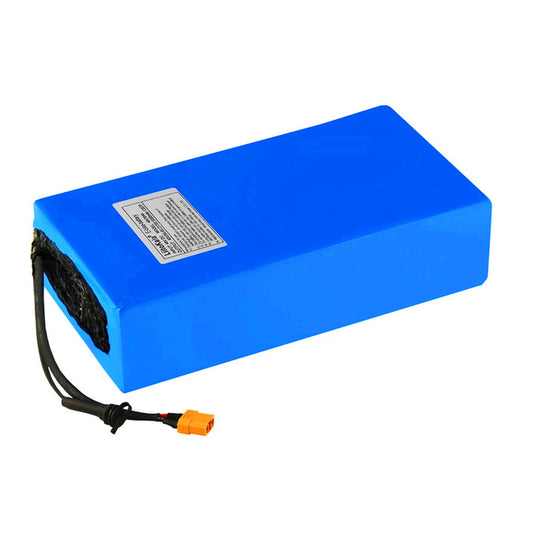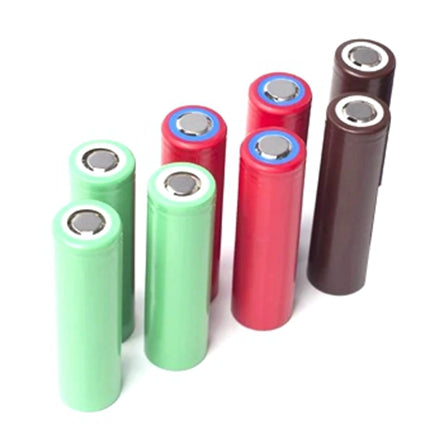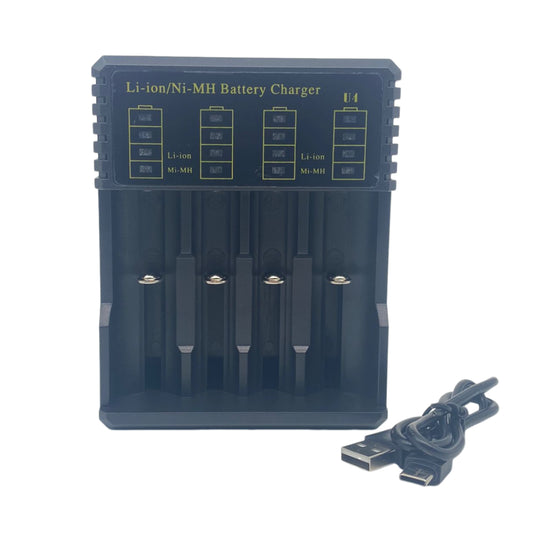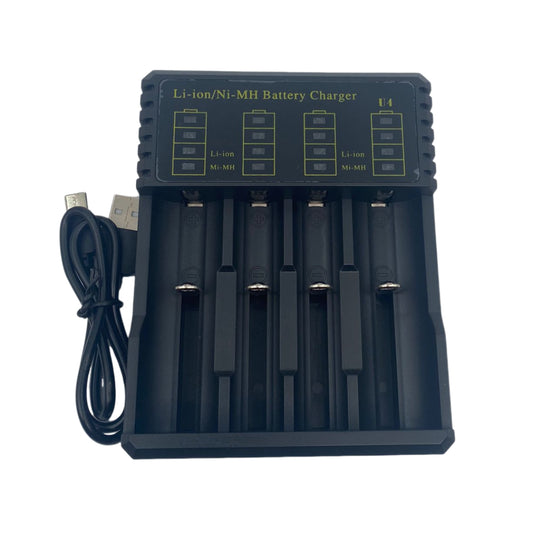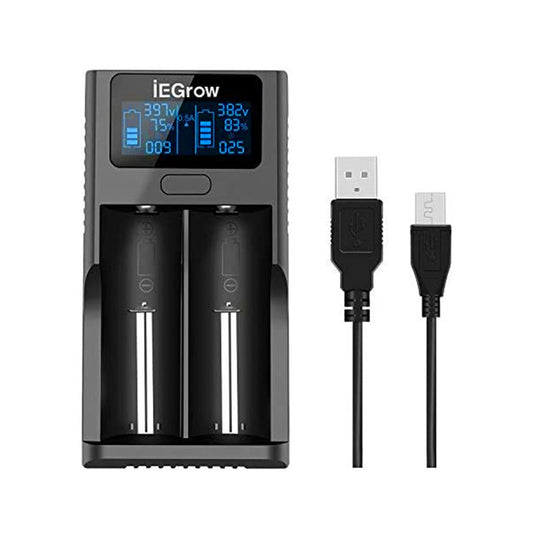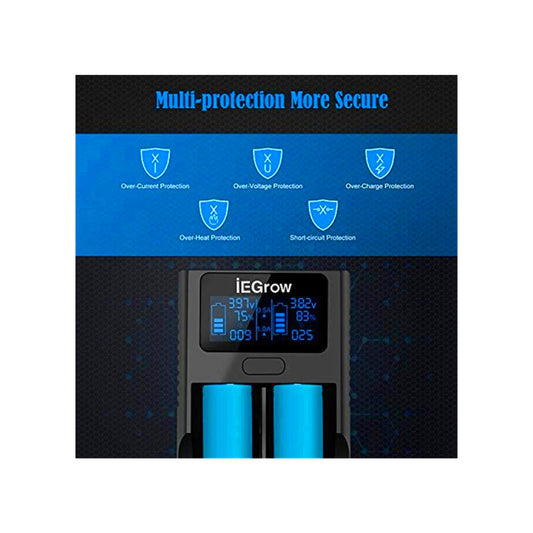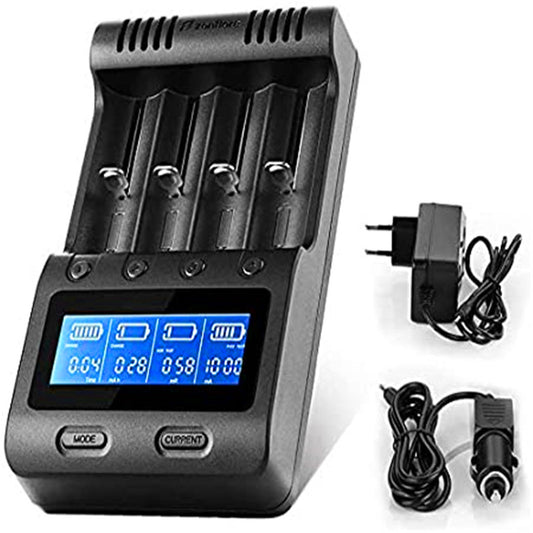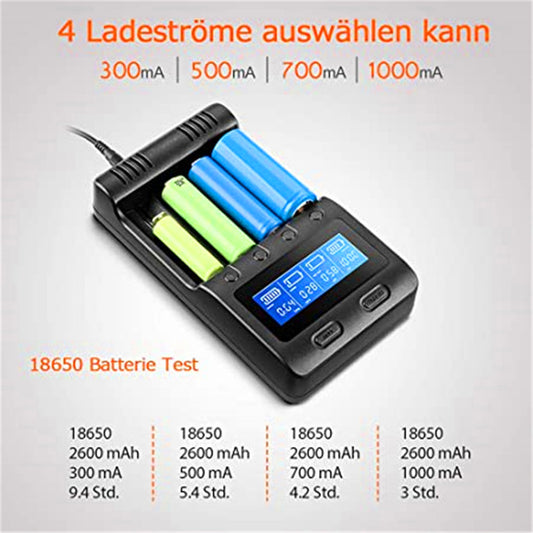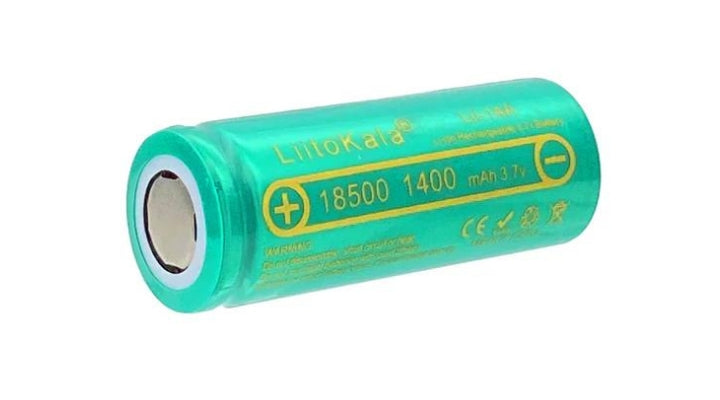Batteries are widely used daily, so proper disposal is necessary to protect the environment. The EPA's national recycling goal is to increase the battery recycling rate to 50% by 2030, which requires the help of individuals and businesses. Here you can find information on how to dispose of single-use, rechargeable, and automotive batteries safely.
Why Should We Dispose of Batteries Properly?
This is because improper handling can lead to releasing toxic substances, which can cause serious damage to the environment and human health. Batteries contain heavy metals and other harmful chemicals that can negatively impact ecosystems long-term if they leach into soil and water sources.
Proper battery disposal also helps recycle valuable materials, reducing the need for raw material extraction and conserving natural resources. By recycling batteries, we can recover metals such as lithium, cobalt, and nickel, which can be used to make new batteries and other products.
How to Dispose of Single-Use Batteries?
Disposal of single-use batteries requires special care, as improper disposal may cause environmental pollution. The following are the proper disposal methods for the three main single-use batteries:
1. Alkaline and Zinc-Carbon Batteries
Alkaline and zinc-carbon batteries are the most common single-use batteries. These batteries include 9-volt, AA, AAA, C, D, and some button cells. They are widely used in a variety of household appliances, such as remote controls and watches.
In most areas, these batteries can be disposed of with normal household waste as they do not contain mercury or other heavy metals. Alternatively, a more environmentally friendly way to dispose of these batteries is to send them to specialized recycling facilities that can recover materials such as iron and zinc.
2. Button or Coin Batteries
Button or coin batteries typically contain high levels of mercury, lithium, or other heavy metals. They are commonly used in watches, hearing aids, and other small electronic devices.
These batteries require special recycling facilities to prevent hazardous materials from entering the environment. Many electronics shops or local authorities provide special bins for the collection of these batteries.
3. Lithium Disposable Batteries
Disposable lithium batteries provide high energy density and are commonly used in cameras and certain high-powered devices. These lithium batteries, such as 18650 batteries, require special care when disposed of as they can cause fire or explosion.
Therefore, lithium batteries should be taken to a proper recycling facility for disposal, as per local environmental regulations. It is not advisable to throw away lithium batteries in regular household waste.
Proper disposal of these batteries will help protect the environment. It also ensures that the valuable materials in used batteries are recycled and reused, thereby reducing the waste of resources.
How to Dispose of Rechargeable Batteries?
Rechargeable batteries generally need to be disposed of by professional recycling methods. Here are the correct disposal ways for five common types of rechargeable batteries:
1. Nickel-Cadmium (Ni-Cd) Batteries
Nickel-cadmium (Ni-Cd) batteries contain the harmful heavy metals nickel and cadmium. This means that these batteries must be recycled using professional methods.
Many countries and regions have special recycling schemes that accept these batteries to ensure that the heavy metals are safely handled and reused. You can collect used Ni-Cd batteries and, after draining them, take them safely to the nearest specialized recycling facility. You can easily locate these facilities using resources like Earth911 or by contacting your local waste management authority.
2. Lithium-ion (Li-ion) Batteries
Li-ion batteries are widely used in mobile phones, laptops, and electric vehicles. Due to their structural characteristics, improper handling may result in fire or explosion. To safely dispose of lithium-ion (Li-ion) batteries, take them to stores that offer recycling services.
For more convenience, especially if you recycle frequently, you can also mail them to the manufacturer that accepts them. Follow the manufacturer's or collection center's packaging instructions, which usually include taping the terminals and placing the batteries in a plastic bag.
3. Nickel Metal Hydride (Ni-MH) Batteries
Nickel-metal hydride (Ni-MH) batteries, such as the 12V NiMH battery pack, are more environmentally friendly and contain fewer harmful substances than Ni-Cd batteries. If no disposal services are available, individual NiMH batteries can be discarded in small quantities with household waste.
However, if you have 10 or more batteries, it's advisable to dispose of them in a secure landfill. A better option is to recycle used batteries in a nearby recycling bin.
4. Nickel-zinc (Ni-Zn) Batteries
Nickel-zinc batteries are less common and are used in certain specific devices. These batteries must also be disposed of through specialized recycling. Locate a recycling facility that accepts Ni-Zn batteries by contacting local waste management authorities or using recycling directories like Earth911. This ensures that nickel and zinc are safely recycled to prevent potential environmental harm.
5. Small Sealed Lead-Acid (Pb) Batteries
Sealed lead-acid batteries are commonly used in emergency lighting and certain types of electric vehicles. Due to high lead concentration, these batteries must be recycled per strict environmental regulations. Find a recycling facility that specializes in lead-acid batteries. These facilities are equipped to handle toxic materials safely. This can prevent lead and other hazardous substances from entering the environment.
It's a good idea to find out about specific battery recycling policies in your area, and available recycling locations before draining these batteries. In addition, many electrical stores and recycling centers offer a free battery recycling service.

How to Dispose of Car Batteries?
Proper disposal of car batteries is an important part of environmental protection, especially lead-acid batteries and large lithium-ion batteries. The proper ways to dispose of them are as below:
1. Lead-acid Batteries
Lead-acid batteries are widely used in fuel-efficient vehicles' starting, lighting, and ignition systems. These batteries contain high levels of lead and sulphuric acid, extremely harmful to the environment.
This is why the recycling of lead-acid batteries is so important. Most regional automotive workshops, battery suppliers, and recycling centers accept old lead-acid batteries for professional recycling. These facilities usually collect the batteries and recycle the lead and plastic components for reuse, while safely disposing of the sulfuric acid contained in the lead-acid batteries.
Moreover, according to an ATZ report, it no longer identifies lead acid as the most toxic battery. Since lead acid can be recycled profitably and nearly 100% is recycled, attention is now shifting to Li-ion due to the increasing volume and value of materials that can be recovered.
2. Medium and Large Lithium-ion Batteries
Lithium-ion batteries, mostly 18650 batteries and 21700 batteries are primarily used in electric and hybrid vehicles. These lithium batteries require special disposal measures to prevent fire hazards and environmental contamination. Both medium and large lithium-ion batteries, like their smaller counterparts, must be handled with care during disposal.
Instead of disposing of these batteries indiscriminately, they should be taken to specialized recycling centers. Many electric vehicle (EV) manufacturers and distributors provide comprehensive recycling services. These programs facilitate the recovery of valuable materials such as lithium and cobalt, ensuring the disposal process complies with environmental regulations.
In addition, Li-ion battery usage is expected to increase tenfold from 2020 to 2030. As a result, recycling lithium could become economically viable. This would allow these metals to be reused in battery production, similar to how lead is reused in lead-acid batteries.
How to Store Used Batteries Before Disposal?
Storing used batteries properly before disposal is to prevent accidents and ensure they are recycled efficiently. Here are some guidelines to help you manage your used batteries safely:
1. Avoid Mixing Different Types of Batteries
Different battery types, such as alkaline, lithium, and rechargeable batteries, can react differently under the same conditions. For instance, mixing alkaline and nickel-cadmium batteries could lead to voltage differences that may cause leakage or rupture. Store each battery type individually, in clearly labeled bags or containers to prevent these hazards.
2. Use Cardboard or Plastic for Storage
3. Cover the Terminals with Tape
Applying non-conductive tape, such as electrical tape, over the battery terminals prevents any conductive contact between terminals of different batteries when stored together. This is essential for batteries stored in bulk, as contact between terminals can create circuits that generate heat or sparks, leading to fires.
4. Store Batteries in Cool, Dry Environments
Heat and humidity can accelerate the degradation of batteries, leading to potential leaks or ruptures. Store batteries in a cool and dry place, away from direct sunlight and heat sources like radiators or heating vents. This environment minimizes the risk of overheating and helps preserve the integrity of the battery casing, thus reducing the likelihood of chemical leaks.
5. Keep Batteries Out of Reach of Children and Pets
Following these expanded guidelines will enhance the safety of storing used batteries, mitigating risks while awaiting proper disposal or recycling.

Where Can I Drop off Used Batteries for Recycling?
You can take used batteries to some places for recycling. These places include electronics stores, hardware stores, recycling centers, and special collection points set up by your local council. Here are the details for finding these places:
1. Where Can I Drop off Used Batteries in the UK
If you're in the UK, you can visit Recycle Now, one of the UK's leading recycling information sites, offering a wide range of recycling information, including battery recycling. You can use their recycling locator to find your nearest battery recycling point.
2. Where Can I Drop off Used Batteries in the USA
If you are in the USA, you can visit Earth911. Earth911 is a versatile resource for finding recycling facilities across the United States. The site’s search tool allows you to enter your ZIP code and the type of battery you need to recycle, offering a list of nearby locations. This service includes options for both household and automotive batteries, ensuring that all types are appropriately handled.
3. Where Can I Drop off Used Batteries in Italy
If you are in Italy, you can visit COBAT. The COBAT (Consorzio Obbligatorio Batterie) website is Italy's central hub for battery recycling. The site provides detailed information on recycling regulations, as well as maps and search tools for locating local recycling points.COBAT also organizes campaigns and provides educational resources on the importance of battery recycling.
4. Where Can I Drop off Used Batteries in Japan
If you are in Japan, you can visit the official JBRC website. This is an organization that deals exclusively with the recycling of rechargeable batteries. There is an area on the website where you can search for battery recycling locations nationwide. You can also find the nearest recycling bin location based on your area.
5. Libraries and Community Centers
Many libraries and community centers in the US and UK act as convenient drop-off points for battery recycling. These locations often partner with recycling programs to provide an accessible option for residents. Checking with your local library or community center can provide you with information on their specific collection times and the types of batteries accepted.
6. Local Electronics and Hardware Stores
Stores such as Best Buy, Home Depot, and even some supermarkets offer battery recycling bins. These retailers often participate in recycling programs, providing an easy drop-off point for consumers. It's good practice to call ahead to confirm their participation in battery recycling and any specific requirements they might have.
7. Local Waste Management Services
Contacting your local waste management authority can provide insights into how to dispose of batteries and other hazardous waste. Many cities and municipalities offer special collection days for hazardous waste or specific instructions on how to dispose of such items safely with regular trash collection services.
Related article: How Long Does a Ring Doorbell Battery Last?
Conclusion
Different types of batteries, including disposable, rechargeable, and automotive ones, require specific disposal methods to prevent contamination. It is beneficial to check local regulations and use designated recycling facilities. Following these guidelines will help you find the most convenient and environmentally friendly ways to dispose of batteries.
FAQ
1. What Should You Do if Your Batteries Leak?
Dealing with a leaking battery involves careful steps to ensure safety and prevent further damage. Here is an expanded guideline on how to handle a leaking battery:-
Always prioritize personal safety when handling leaking batteries. Wear protective gloves (nitrile or rubber gloves are suitable) to avoid direct contact with the battery's contents, which can be corrosive. If available, also use safety goggles to protect your eyes from potential splashes. Ensure that the area is well-ventilated to avoid inhaling harmful fumes.
-
Place the leaking battery in a plastic bag and seal it tightly. This prevents the escape of any further hazardous material. For extra safety, place the sealed bag inside a second bag and seal it as well. This double-bagging method helps contain any leaks or odors. After removing the battery, it’s important to clean any residue from the device and the area where the battery was stored.
-
Do not dispose of the leaking battery in regular trash due to the hazardous nature of its contents. Take it to a designated recycling center or hazardous waste facility. These facilities are equipped to handle and process such materials safely and in compliance with environmental regulations.
-
To avoid future incidents, regularly check the condition of batteries in your devices, especially if they are not used frequently. Store batteries at room temperature in a dry environment to reduce the risk of degradation and leakage.
By following these steps, you can safely manage leaking batteries and minimize potential harm to yourself and your surroundings.
2. How to Clean Battery Corrosion Safely?
Safely cleaning battery corrosion can prevent damage to electronic devices and protect you from harmful chemicals. Here are detailed steps for cleaning battery corrosion efficiently and safely:
-
Carefully remove the corroded batteries from the device. If the batteries are stuck due to corrosion, gently pry them out using a plastic or wooden tool (never metal, as it can conduct electricity and cause shorts). Dispose of the batteries properly at a recycling center or hazardous waste facility.
-
Remove any loose corrosion debris from the battery compartment using a dry cloth or a soft brush. Be gentle to avoid pushing the debris further into the device.
-
Depending on the battery type, you'll need to neutralize the residue. For alkaline batteries, use a weak acid like vinegar or lemon juice. If the batteries are acid-based (like some car batteries), use a weak base like a baking soda-water solution. Apply the neutralizer using a cotton swab or a small brush to the corroded areas. Let it sit for a few minutes to neutralize the corrosion.
-
After neutralizing, wipe the area with a damp cloth soaked in clean water to remove the neutralizing agent and any remaining corrosion. For sensitive electronic components, it might be safer to use a cotton swab lightly dampened with distilled water.
-
Thoroughly dry the cleaned area with a dry cloth or towel. Ensure that no moisture remains, as it could lead to further corrosion or damage to electronics.
-
Once the area is clean and dry, consider applying a small amount of petroleum jelly or contact lubricant to the battery contacts. This can help prevent future corrosion and ensure good electrical contact.
-
Regularly check and maintain the battery compartments of your devices to prevent corrosion in the future. Store your devices in a cool, dry place and check the batteries periodically, especially if the device is not used regularly.
3. How Long Do Car Batteries Last?
-
Environmental Conditions: Batteries degrade faster in extreme weather. High temperatures accelerate chemical reactions within the battery, while cold temperatures can diminish its power output.
-
Usage Patterns: Batteries drain quicker under certain usage patterns, such as frequent short drives that prevent the battery from fully recharging.
-
Vehicle Demands: Cars equipped with numerous electronic accessories, like advanced navigation systems and high-end audio, demand more from a battery, potentially shortening its lifespan.
-
Care and Maintenance: Keeping a battery well-maintained by regularly checking its cleanliness, ensuring connections are secure and free of corrosion, and monitoring fluid levels can extend its lifespan.
- Battery Quality: Opting for a battery from a well-regarded manufacturer that matches your vehicle’s specifications can also influence how long it lasts.
Proactive maintenance and understanding your vehicle's needs are key to extending the life of a car battery. Regular vehicle checks and replacing the battery before it fails can help avoid unexpected breakdowns.

